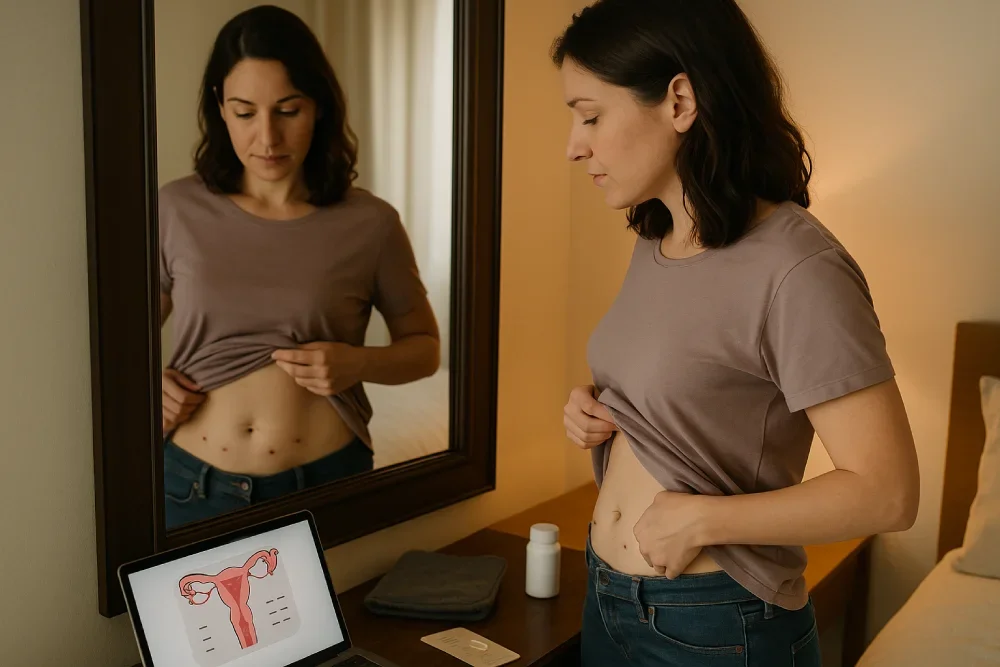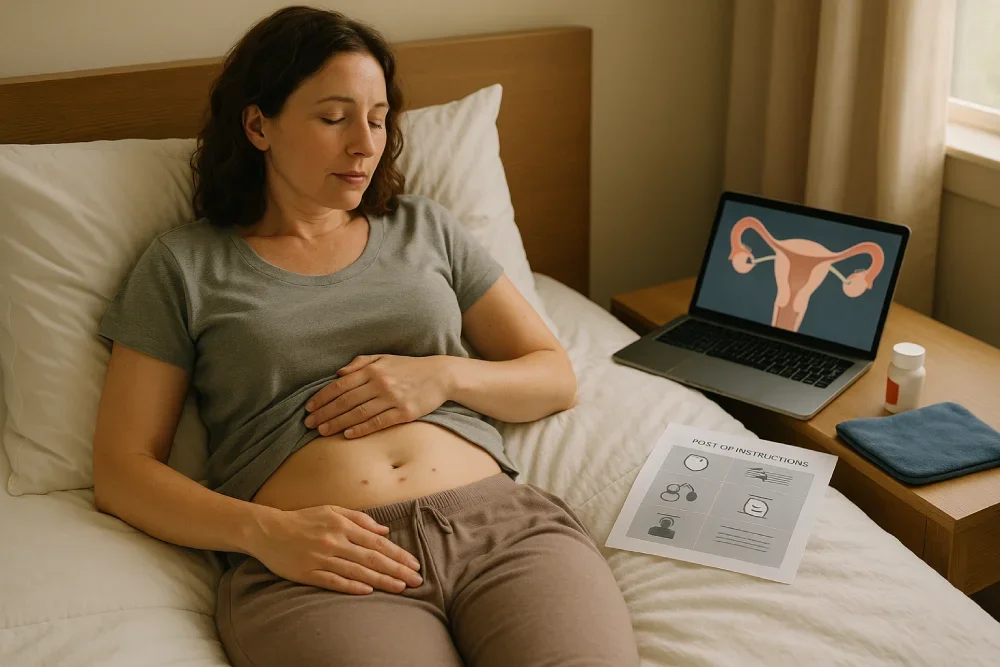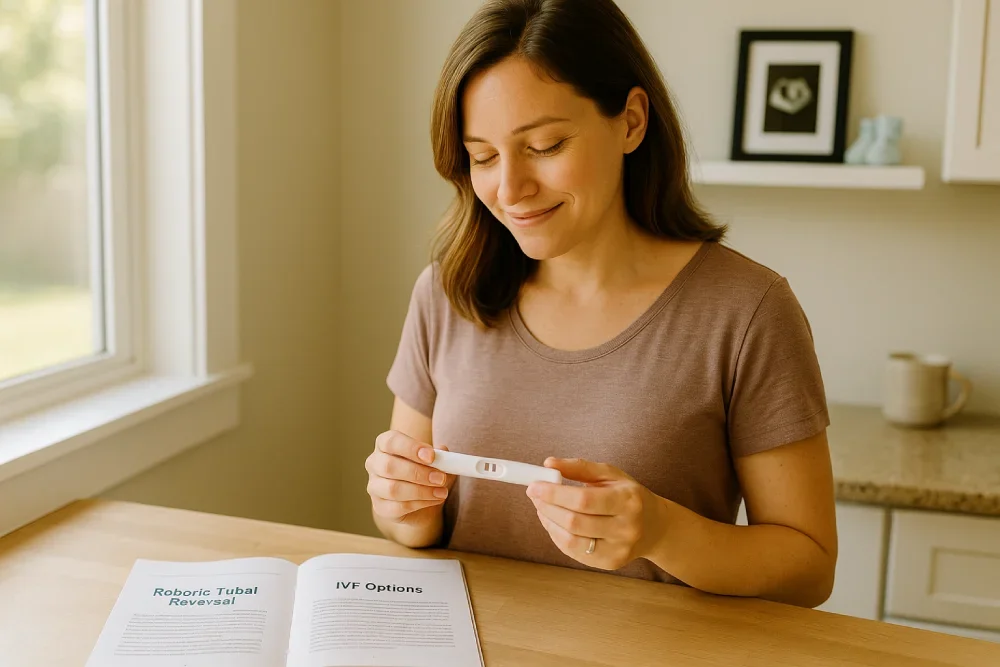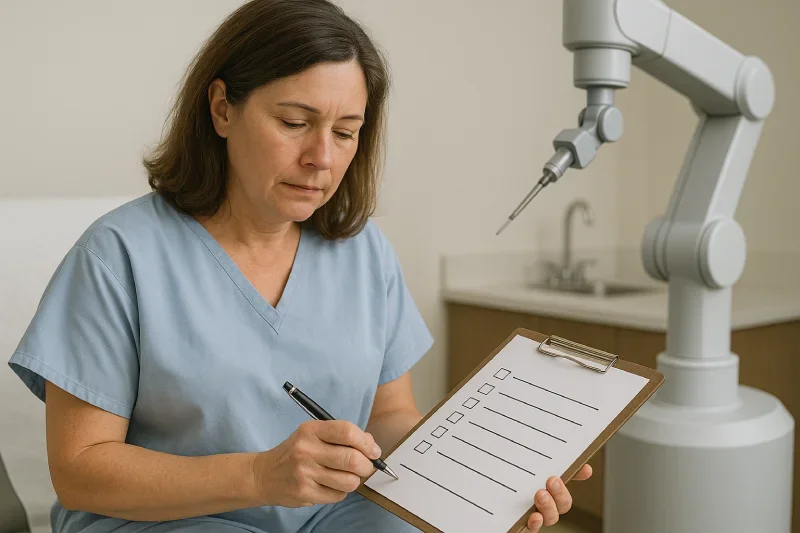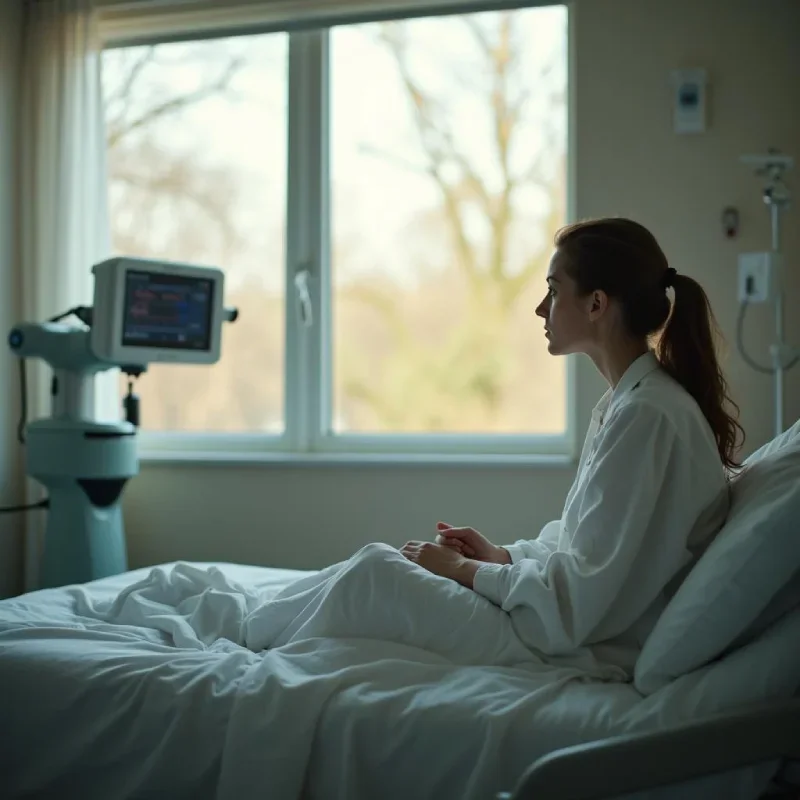
Articles
Robotic tubal reversal costs range from $5,000 to $10,000 or more, and most insurance plans do not cover this elective procedure.
Robotic tubal reversal offers significant advantages in post-operative recovery compared to traditional open surgery.
Robotic Essure reversal offers significant advantages over traditional open surgery for managing post-operative pain and minimizing scarring.
Women considering fertility options after tubal sterilization face an important choice between robotic tubal reversal and IVF. Both treatments offer good pregnancy rates but work in very different ways. Understanding success rates helps you make the best decision for your situation.
Proper preparation for robotic hysterectomy surgery helps ensure the best possible outcome. Following a complete checklist reduces risks and speeds up your recovery. Good preparation also helps you feel more confident and ready for surgery day.
Preparing for robotic hysterectomy involves more than just physical readiness. Your emotional and mental preparation plays a key role in your surgery success. Many women experience anxiety, stress, and concerns about body image before this procedure.
Robotic hysterectomy recovery takes about 6 to 8 weeks for most patients. This surgery uses small cuts instead of one large opening. The small cuts heal faster and cause less pain than traditional surgery.
Robotic hysterectomy uses small incisions to remove the uterus. This method causes less pain than traditional open surgery. It also leads to faster recovery times.
Robotic Essure reversal surgery removes Essure contraceptive coils from the fallopian tubes and repairs the tubes to restore their function. This minimally invasive procedure uses robotic technology to give surgeons enhanced precision when working around delicate reproductive anatomy.


